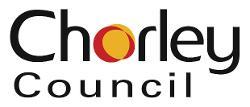Children and Young People Safeguarding Policy 2022
3.3 Responding to disclosure
If you receive information concerning disclosure you should:
- react calmly so as not to frighten the child or young person.
- tell the child or young person that he/she is not to blame and that he / she was right to tell you.
- take what the child or young person says seriously, recognising the difficulties inherent in interpreting what is said by a child or young person who has a speech disability and/or differences in language.
- you should not attempt to investigate the abuse. Remember that an allegation of abuse or neglect may lead to court action to protect the child or to punish the abuser. Both could be jeopardised if you act inappropriately. Your role is to listen and record. Keep questions to the absolute minimum to ensure a clear and accurate understanding of what has been said. DO NOT ASK CLOSED OR LEADING QUESTIONS such as "did he touch you? " Allow the child to talk freely and be supportive.
- reassure the child or young person but do not make promises of secrecy or confidentiality, as these may not be feasible as a result of subsequent developments.
- make a full written record of what had been said, heard and/or seen as soon as possible, ensuring that you use the exact words of the speaker.
- complete a Child Protection Incident Reporting Form as provided in Appendix A attaching the original written record, or using the form as the first record of the disclosure if available.
ACT NOW - DO NOT DELAY. Pass the referral to a Designated Safeguarding Officer (DSO) immediately in person. This should be done as soon as practically possible in an 'out of hours' situation and reporting the matter should not be delayed by attempts to obtain further information. - if the disclosure relates to a member of staff within your directorate or another Designated Officer then the issue should be passed immediately to the Lead Safeguarding Officer.
- if you have reason to believe an individual is in immediate danger of harm then you should personally contact the Police ensuring that a Designated Officer is made aware at the earliest opportunity. (The police will automatically inform LCC Children's Services). Try to maintain surveillance of the situation. A record should be taken of the name and position of the police officer to whom the concerns were passed along with the time and date of the call, in case any follow up is needed.
- if the immediate danger relates to suspected abuse by a parent/carer, do not allow the child or young person to go home with them without calling the Police to the scene.
In some instances it may be that the child or young person is unable to express him or herself verbally and means that it may be difficult for vulnerable victims of abuse to complain or be understood. Sometimes it is hard to distinguish the signs of abuse from the symptoms of some disabilities or conditions. However, where there are concerns about the safety of a disabled child or young person representatives should record what has been observed in detail and follow the Council's procedures to report these concerns.
If you receive a disclosure:
- do not panic.
- do not allow any shock or distaste to show.
- do not probe for more information than is offered or ask leading questions.
- do not speculate or make assumptions.
- do not make negative comments about the alleged abuser.
- do not approach the alleged abuser.
- do not make promises or agree to keep secrets
In all cases, if you are not sure what to do you should contact a Designated Safeguarding Officer (DSO) who will be able to provide advice. A list of contacts is available in the Appendix B of this policy and on the Loop. If you are not sure what to do you can gain help from the NSPCC 24-hour help line Tel No: 0808 800 5000.
The Designated Safeguarding Officer (DSO) must report the incident or seek advice from LCC Children Services as soon as possible but within an absolute maximum of 24 hours from the receipt of a Child Protection Incident Reporting Form. The DSCO will advise the referrer of the action they will take and further feedback will only be provided if appropriate.
If an allegation relates to a person/people in a position of trust (PiPOT) this may include, but is not limited to any staff working on behalf of:
- social care
- health services
- police and criminal justice
- housing
- education
- advocacy
- GPs
- independent sector
- agency and bank workers
- religious/faith leaders
- commissioning services
View more information on safeguarding policies and procedures on the LCC website.




